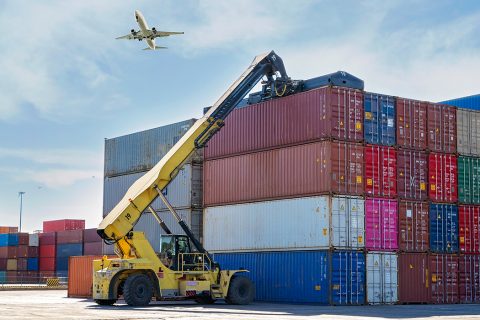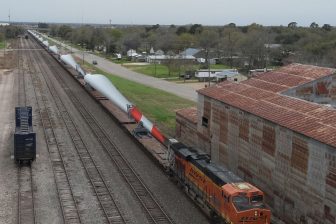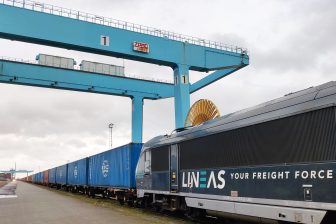
C.H. Robinson: Freight market in extended peak season
For global freight shippers, managing disruption comes with the job. But the challenges of the last year have truly been out of the ordinary, according to C.H. Robinson’s president of global forwarding, Mike Short.
Supply chain disruptions that consist of port and terminal congestion, shipping delays due to high cargo volumes, lack of labor due to Covid-19 and limited space have caused a myriad of challenges for shippers. For many, it has felt like one big, never ending peak season, and they’re all asking when will things get better and what can they do in the interim, especially as the industry heads into pre-holiday shipping.
Unfortunately, disruptions and delays likely won’t be ending soon. But there are best practices that all shippers can follow to navigate the pre-holiday rush.
Ocean shipping not slowing any time soon
Ocean demand continues to exceed global capacity, with no sign of slowing down. This is compounded by port congestion, largely unreliable and inflexible schedules, and pandemic driven labor challenges at major ports. But these issues aren’t a product of the pandemic alone.
In 2015, there were roughly 17 global ocean carriers. After mergers and consolidations, only 9 remain in 2021. Those 9 have been further consolidated into three alliances that control over 80 percent of the global containerized market. As a result, there are limited options for getting space on vessels and lower flexibility across vessel schedules due to the number of ships in rotation and the lack of available containers, Short says.
Globally, schedule reliability in ocean shipping is at the lowest levels ever seen. Right now, the reliability that a vessel carrying goods will arrive on time is roughly 40 percent. At this time last year, it was over 80 percent. While ocean carriers are trying to stay on track to destinations by skipping ports or enabling blank sailings, improving the schedule systematically in time, their methods are negatively impacting customers trying to transport products out of high-traffic areas such as Asia in a timely manner.
Air Shipping
Lower levels of passenger air travel over the past year have created congestion at air cargo terminals worldwide.
Pandemic-induced travel restrictions reduced commercial air capacity dramatically. Instead of having weekly passenger flights that move cargo volume to a wider network of airports in smaller quantities, most freight is now consolidated at larger terminals in bigger quantities via freighters or charter flights.
Terminals are then receiving increasingly large waves of freight, pushing demand to an all-time high over this past summer while also having to navigate labor shortages. Today, some of the larger terminals such as Chicago are seeing up to two-week delays in recovery of cargo, Short says.
In addition, changes in export screening standards in the U.S. are also creating backlogs and congestion at terminals that’s exacerbated by lack of warehouse capacities. Carriers have been tasked with picking up more screening activities than usual because some shippers may not be partnering with the right forwarder who can take care of the screening for them.
This increased screening is also at odds with expedited terminal timelines, which currently give carriers as little as 12 hours to move freight that traditionally would have had a 48-hour takeoff window. If problems are encountered during screening or transportation to the terminal that slow the timeline, congestion will follow.
“Shipping disruptions likely won’t be ending soon. It has taken the industry about a year to get to this point, so it’s safe to say that it may take just as long for things to revert to normal levels or to adjust to the higher demand,” Short adds.
Shippers have had to become increasingly nimble and informed to create success throughout this past year, and they must commit to staying flexible and seeking alternative solutions to continue overcoming obstacles.
You just read one of our premium articles free of charge
Register now to keep reading premium articles.




